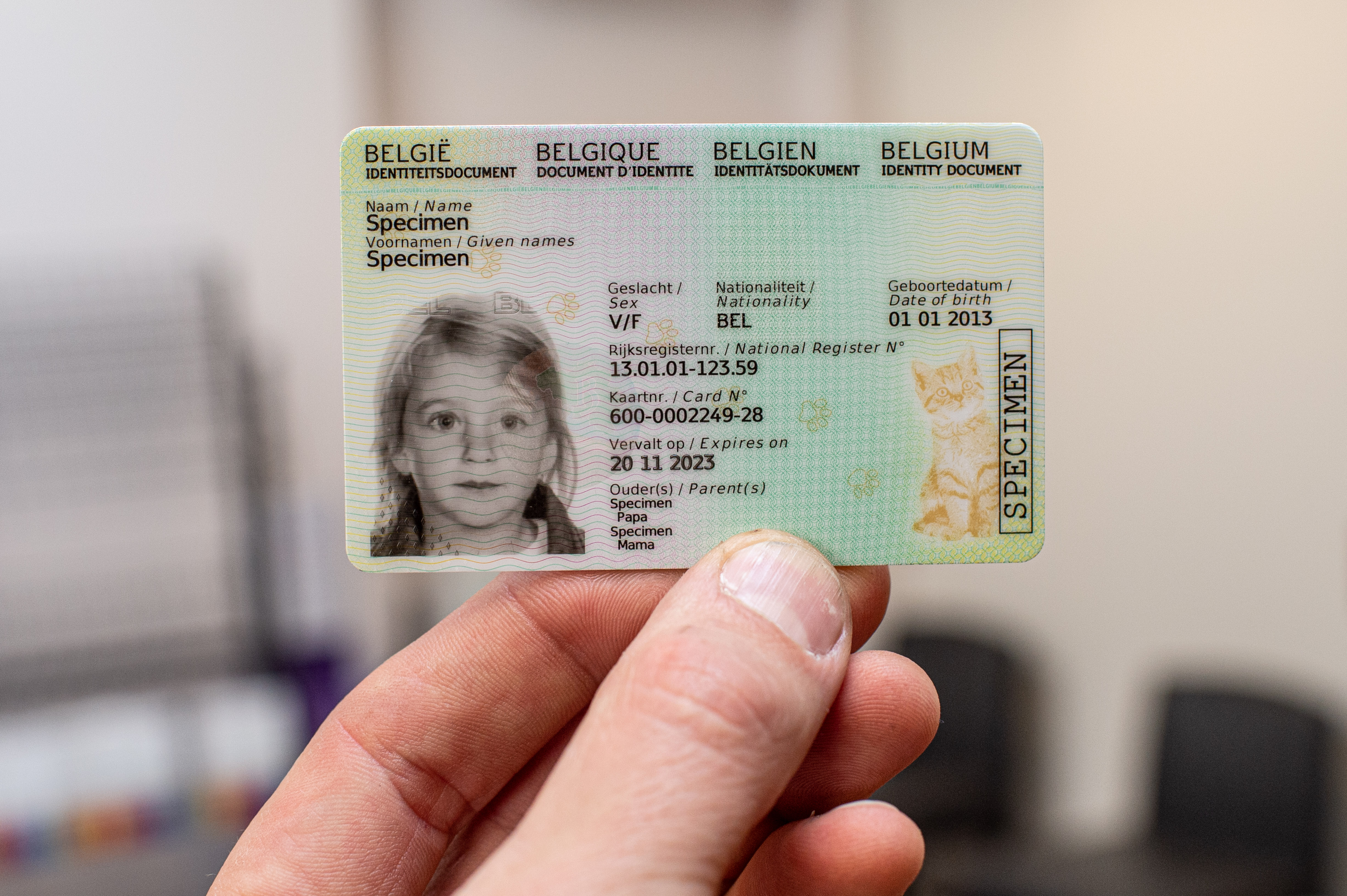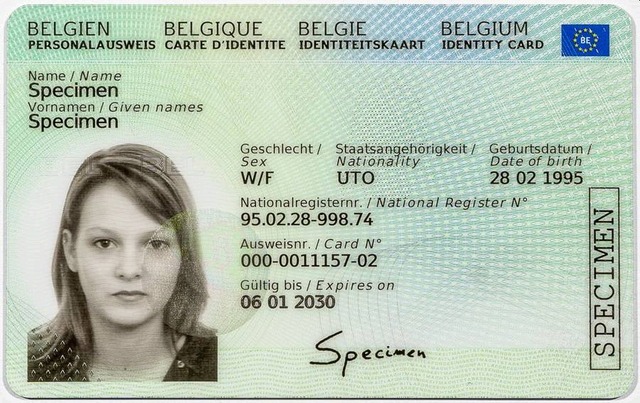Blog
Unlocking the Secrets of the Belgian ID Card for 2025
Unlocking the Secrets of the Belgian ID Card for 2025
Unlocking the Secrets of the Belgian ID Card for 2025 In today’s digitally advanced world, your identity is more than just a name or a number—it’s the key to everything from healthcare and housing to banking and borderless travel. Belgium has long been ahead of the curve with its smart, secure, and user-friendly electronic identification system. As we enter 2025, the Belgian ID card, commonly known as the eID, continues to evolve with cutting-edge technology, deeper integration with government services, and expanded uses across the EU.
In this in-depth guide, we’ll reveal everything you need to know about the Belgian ID card in 2025—from application and eligibility to the digital benefits and real-world uses you might not even know exist.

What is the Belgian ID Card?
Unlocking the Secrets of the Belgian ID Card for 2025 The Belgian identity card, or eID, is a government-issued document that serves as your official proof of identity and residency in Belgium. Introduced in digital format as early as the 2000s, the eID today is much more than a plastic card—it’s a powerful digital tool embedded with a chip that links your identity to secure online services.
It includes:
-
Your full name, birth date, and photo
-
National register number
-
Address and citizenship
-
Biometric data (e.g., fingerprints)
-
An electronic chip for digital authentication
Who Needs a Belgian ID Card?
In 2025, every Belgian citizen aged 12 and older is legally required to have a valid ID card. But it’s not just for Belgians:
-
EU citizens residing in Belgium are issued electronic residence cards.
-
Non-EU nationals with legal residence receive similar identity cards under different categories (A, B, C, D, F cards).
Even children under 12 can receive a Kids-ID, a mini-version of the national ID that doubles as a travel and safety tool.
Types of Belgian ID Cards in 2025
1. eID (for Citizens Aged 12+)
The standard electronic ID card for Belgian nationals.
2. Kids-ID
Issued for children under 12, primarily for identification and travel within the EU.
3. Residence Cards (EU & Non-EU Residents)
Issued to foreign nationals legally residing in Belgium, with types such as:
-
E/E+ (EU citizens)
-
A/B/C/D/F (Non-EU nationals and family members)
Each type defines your legal status and rights in Belgium.
Benefits and Features
Owning a Belgian ID card unlocks a range of powerful features and conveniences:
-
Legal proof of identity and residency
-
Travel within Schengen Area without a passport
-
Digital access to government services
-
Electronic signature for official documents
-
Secure login to online portals
-
Voting rights for Belgian citizens
-
Simplified document verification (banks, hospitals, universities)
How to Apply in 2025
Applying for a Belgian ID card is easy if you follow these steps:
Step 1: Register with Your Municipality
You must first register your residence with the local commune or gemeente.
Step 2: Receive Invitation
Once registered, you’ll get a letter with a PIN and PUK code, inviting you to apply.
Step 3: Visit the Commune
Bring your documents and attend a biometric session (photo, fingerprints, signature).
Step 4: Card Production
The card is printed and delivered in 1–3 weeks, depending on urgency.
Step 5: Collect Your eID
Pick up your ID at your commune with the original PIN/PUK letter.
Documents Required
When applying for a Belgian ID card, have the following ready:
-
Valid passport or previous ID card
-
Residence registration certificate
-
Proof of address (utility bill or lease agreement)
-
PIN/PUK invitation letter
-
Birth certificate (for minors)
-
Parental consent (for Kids-ID)
Card Validity and Renewal
| Type | Validity |
|---|---|
| eID (Age < 75) | 10 years |
| eID (Age 75+) | 30 years |
| Kids-ID | 3 years |
| Residence Cards | 1–5 years |
Renewing Your eID:
-
Start 3 months before expiration
-
Submit biometric data again
-
Get new PIN and PUK codes
-
Pay renewal fee at the commune
What to Do if You Lose Your ID
Lost or stolen ID? Follow these steps:
-
Report to the Police
-
Inform Your Municipality
-
Request a New Card (temporary card may be issued)
-
Optional: Call DocStop Belgium (0800 2123 2123) to block misuse
Digital Secrets of the eID
The Belgian eID isn’t just a plastic card—it’s your digital passport to government services. Here’s what it can do:
Secure Online Login
Log into portals like:
-
Tax-on-web
-
Social security sites
-
E-Health
Sign Documents Digitally
Use your eID with a smart card reader and PIN to sign official documents with legal standing.
Access eGovernment Services
File taxes, apply for unemployment benefits, request certificates—all online.
Traveling with a Belgian ID Card
In 2025, the Belgian ID card is still valid for travel across all EU and Schengen countries. No passport is required within:
-
France
-
Germany
-
Netherlands
-
Spain
-
Italy
-
Poland
-
Greece
-
And more…
Make sure your card is valid and not close to expiring.
Belgian ID Card vs Passport
| Feature | ID Card | Passport |
|---|---|---|
| Travel in EU/Schengen | ✅ Yes | ✅ Yes |
| Travel outside EU | ❌ No | ✅ Yes |
| Digital Services | ✅ Yes | ❌ No |
| Biometric Data | ✅ Yes | ✅ Yes |
| Validity | 10–30 years | 7 years (for adults) |
Security Features You Should Know
The Belgian eID is among the most secure in the world. It features:
-
Laser-engraved personal data
-
Invisible holograms
-
UV ink for official verification
-
Biometric chip encryption
-
Two-factor PIN/PUK access
These features make fraud or duplication nearly impossible.

FAQs
Can I travel with only my ID card?
Yes, within the EU and Schengen Area.
What if I forget my PIN?
Visit your commune to request a new PIN/PUK code.
Do children need an ID card?
Children under 12 can get a Kids-ID. It’s optional but recommended for travel and safety.
Can I apply online?
No, biometric data must be collected in person.
Final Thoughts
The Belgian ID card in 2025 is more powerful and secure than ever. It’s your passport to daily life, from opening a bank account to voting, and even traveling across borders—all while offering seamless access to digital services and protection through advanced encryption.
If you’re living in Belgium or planning to move, don’t underestimate the importance of this card. Understanding how it works and using it effectively can unlock a smoother, safer, and more empowered life in this European hub.

